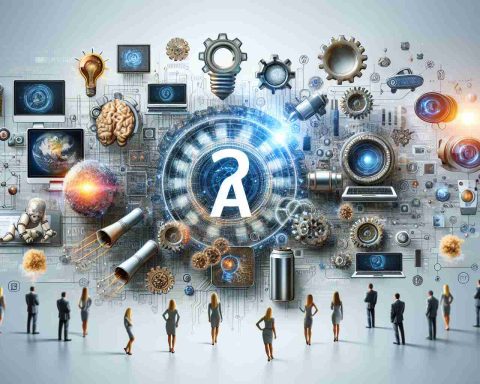India stands at the threshold of significant advancements in the realm of Artificial Intelligence (AI), presenting a unique landscape for job creation, as highlighted by Meta India’s Vice President, Sandhya Devanathan. In her insights, she expressed optimism regarding the opportunities AI could foster in the Indian job market. Devanathan emphasized that while the nature of employment may evolve, this transition could lead to the emergence of new roles and opportunities tailored to the innovative changes brought about by AI.
The conversation surrounding the transformative impact of AI on labor markets continues to be a focal point in both technical and societal discussions. India’s Economic Survey has raised concerns about potential obstacles that AI might introduce, urging companies to strategize on enhancing labor roles rather than displacing them. This insight underscores a critical need for the corporate sector to balance innovation with workforce welfare.
On the topic of regulations, Devanathan highlighted the importance of progressive policies governing AI and digital markets. She noted the necessity for a balance between safeguarding users and fostering innovation, considering both aspects to be essential for national growth.
With India being one of Meta’s primary markets, the increased engagement with AI tools, including its popular platforms, signifies the country’s readiness to embrace the future of work shaped by AI advancements. As a leading nation in adopting AI technologies, India’s potential trajectory remains promising amidst evolving regulatory landscapes.
The Future of AI-Driven Job Creation in India: Opportunities and Challenges
India is on the cusp of a transformative change with the rise of Artificial Intelligence (AI) and its implications for job creation. As the nation embraces this technology, it presents a unique blend of opportunities and challenges that stakeholders must navigate to ensure equitable growth.
Key Questions on AI-Driven Job Creation
1. What types of jobs will emerge as AI continues to advance in India?
– AI is expected to lead to the creation of roles like AI trainers, data scientists, and AI ethics compliance officers, focusing on implementing AI responsibly. Additionally, sectors such as healthcare, transportation, and agriculture are poised to benefit significantly, creating roles that require human expertise alongside technological support.
2. How can the workforce be prepared for the transition to AI-driven jobs?
– Upskilling and reskilling are paramount. Educational institutions and training programs must pivot to include AI literacy, machine learning principles, and technical skills that align with the evolving job landscape. Government and private sector initiatives can play a pivotal role in facilitating these transitions through partnerships.
3. What ethical considerations arise from AI’s integration into the workforce?
– The rise of AI brings forth ethical dilemmas such as privacy concerns, algorithmic bias, and job displacement. Ensuring that AI systems are developed and implemented with fairness and transparency will be vital in preserving trust in these technologies.
Challenges and Controversies
While opportunities abound, several challenges must be addressed:
– Job Displacement: As certain job roles become automated, workers in low-skill positions may face unemployment or necessitate a significant shift in their career paths.
– Data Privacy and Security: The deployment of AI systems that rely on vast amounts of data raises concerns regarding user privacy and data protection laws. Regulatory frameworks must keep pace with technological advancements to safeguard citizens.
– Access to Technology: There can be disparities in access to AI technologies, particularly in rural and underserved areas. Bridging this digital divide is critical to ensure that all segments of the population can benefit from AI’s potential.
Advantages of AI-Driven Job Creation
1. Enhanced Productivity: AI can automate mundane and repetitive tasks, increasing overall productivity and freeing human workers to focus on more complex, creative endeavors.
2. Innovative Industries: The introduction of AI is fostering the growth of entirely new industries and business models, from AI consulting to advanced analytics, which can drive economic growth.
3. Skill Development: The rising emphasis on technological skills opens new educational opportunities and can help build a more skilled workforce prepared for the demands of the future.
Disadvantages of AI-Driven Job Creation
1. Economic Disparities: Without proper interventions, AI could exacerbate economic inequalities by benefiting those with the skills necessary to thrive in an AI-driven economy while leaving behind low-skilled workers.
2. Ethical Risks: The risk of autonomous decision-making systems could lead to unintended consequences, such as loss of jobs without a safety net or perpetuating biases that exist in historical data.
3. Short-Term Disruptions: Transition periods may witness significant disruptions in job markets, which could lead to social unrest or pushback against AI integration if not managed thoughtfully.
As India progresses towards an AI-centric future, the dialogue surrounding these topics will be critical. Collaborative efforts among government, industry leaders, and educational institutions are essential to harness the full potential of AI while minimizing adverse effects.
For further insights on AI and digital innovation, visit NASSCOM and Startup India.

















